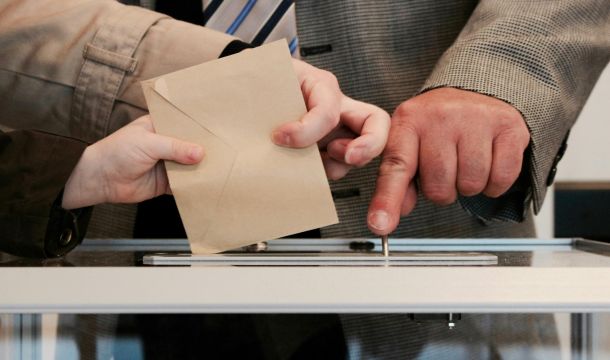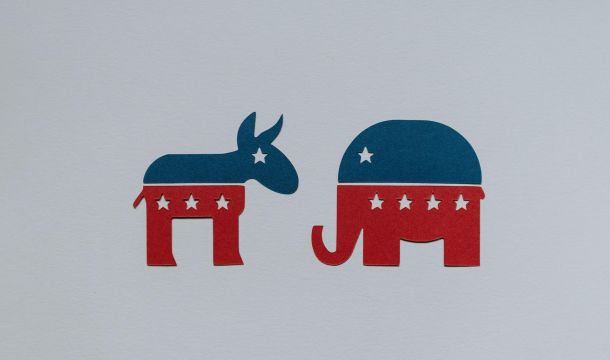UAW Declares Victory in Auto Strikes
There are many "firsts" in the auto strike that appears to have concluded in late October. It was the first time that all three of Detroit's major automakers were on strike at the same time. The union also used an unusual strike tactic in staging short strikes at select plants among the three Detroit automakers increasing their ability to inflict significant harm to the automakers without significant damage to union members or the union's strike funds. Nevertheless, the UAW strike had grown to include more than 45,000 workers at eight assembly plants and 38 parts-distribution facilities. The strike was also the first time a President of the United States has joined a union picket line pushing them to hold out for the 40% pay raise they were seeking, although at the time the union had dropped its demands to 36% (over approximately four and a half years). In any event, the union was successful in gaining public support for its efforts, with polls indicating some 75% of the public supported the union's strike.
The first automaker to settle was Ford, and the last was General Motors on October 30, 2023. The Ford settlement included terms such as:
-
25% general raise over the four-year, eight-month contract.
-
Immediate pay increase of 11% for top earners, and elimination of the wage tiers, so that the lowest paid workers get an immediate 88% increase.
-
Restoration of cost-of-living increases will likely raise total pay by more than 30%, with the top pay going to $42.60 an hour.
-
$5,000 ratification bonus.
-
$1,500.00 voucher toward a new vehicle purchase.
-
Additional opportunities for profit sharing.
-
Temporary workers will be converted to permanent employees after nine months.
-
401(k) retirement savings plans raised to 10% from 6.4%.
-
Right-to-strike over future plant closures.
-
Two weeks' paid parental leave.
-
Juneteenth added as a holiday.
UAW President Shawn Fain was rather brilliant in getting support from the strikers and the public, emphasizing the sacrifices made by the union a little over a decade ago compared to the current large profits, as well as the large paychecks issued to company executives. They also organized regular video reports to union members, with the employers being unable to match the media intensity in favor of the unions.
It should be noted that the union did not achieve all of its goals. The union had originally sought a 40% raise and 32-hour work weeks, as well as going back to the defined benefit pension plans that once existed but were eliminated in favor of 401(k) plans. Further, the union achieved only a limited expansion of the agreement to cover new plants.
In spite of the record gains in the negotiations, early reports indicate that the agreement at GM was approved by only 55% of those voting. In other words, an extremely difficult situation is created from both employers and unions when worker expectations are raised so high that even record increases cannot satisfy them. The three automakers went so far as to even agree to pay the striking workers their time on the picket lines, at least in part. Workers also received up to $500 a week in strike benefits for picketing.
An analyst has estimated that the labor deal will likely add $1.5 billion in annual costs to Ford, and GM indicated that the strike had already cost it around $800 million. UAW President Fain has announced that he plans to use the auto deals to organize non-union auto factories, and claims they are "going to organize like we've never organized before." Fain announced the contract "a huge victory," indicating it offered a "pathway" for future EV workers to be able to come under the union's master agreement.
The UAW settlements are still another union victory in a year of multiplying strikes leading to union contract gains during a strong labor market. Public support for unions reached 71% last year, the highest level since 1965, according to Gallup polls.
But the large wage and benefit gains come at a cost. Automakers will look for ways to offset the higher expenses, since the new contract could add $900 or more per vehicle in additional costs. The higher costs are making it easier for non-union automakers such as Tesla, Toyota, Volkswagen, and foreign automakers, to gain market share. Ford announced that it would delay $12 billion in capital spending on battery plants and other EV projects. Further, the additional labor costs will encourage even more movement towards automation, and thus UAW members could become long-term losers if the increased costs cause their jobs to go away. As an example of this, United Parcel Service, after recently settling a collective bargaining agreement with the Teamsters Union, announced that in their newest warehouse that they will have 200 workers and 3,000 robots.
Fain also seems to be waiving the "class" argument, encouraging workers to take on the "billionaire class." He urges a return to harsher and more militant actions, such as the entire organized labor movement to strike on the date of the three contracts' expiration (April 30, 2028). He urges unions across the country to set their contract expirations on this date, suggesting some type national work stoppage.
This article is part of our December 2023 Newsletter.
View newsletter online
Download the newsletter as a PDF
Related Content
Get Email Updates

Department of Homeland Security (DHS) is Terminating Family Reunification Parole (FRP) Processes

DHS is Terminating Temporary Protected Status for Ethiopia

Issues Regarding Employee Access to Their Personnel Files

Issues of Employer Access to Employees’ Personal Devices Such as Cell Phones, Etc

Settlement Agreement Wording Can Determine Tax Treatment



